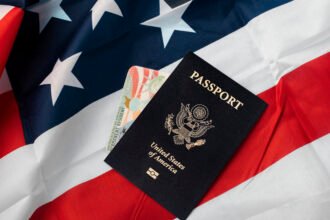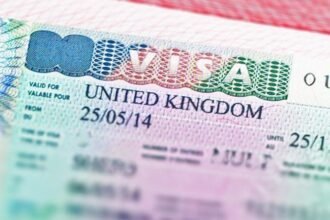Applying for a Canadian visa can be an exciting yet daunting experience. Canada is one of the most desirable destinations for immigrants, students, and tourists due to its high quality of life, safety, and diverse opportunities. However, every year, thousands of visa applications are refused for a wide range of reasons—many of which could have been avoided with better preparation. Understanding why visas are refused and how to address these issues can significantly increase your chances of approval. In this comprehensive guide, we will explore the most common reasons for Canadian visa refusals and provide detailed strategies on how to avoid them.
Understanding the Canadian Visa Process
Before diving into the reasons for visa refusals, it’s crucial to understand how the Canadian visa process works. The Government of Canada, through Immigration, Refugees and Citizenship Canada (IRCC), carefully evaluates all visa applications. Each application is reviewed by a visa officer who assesses eligibility based on immigration law, supporting documentation, and the applicant’s intentions. The visa categories include temporary resident visas (visitor visas), study permits, work permits, and permanent residency visas. Each has its own set of requirements and evaluation criteria. A visa refusal does not necessarily mean you are permanently barred from entering Canada—it simply means your application did not meet the necessary criteria at that time.
Incomplete or Incorrect Documentation
One of the most common reasons for Canadian visa refusals is incomplete or inaccurate documentation. When applying for a visa, applicants must submit a wide range of documents to support their application. This may include bank statements, proof of employment, travel history, letters of invitation, and identification documents. Missing or inconsistent information can immediately lead to a refusal.
How to Avoid It:
- Review the document checklist provided by IRCC for your specific visa type.
- Ensure that all documents are clear, translated (if required), and certified.
- Double-check for missing pages in your passport or incomplete forms.
- Seek professional help from an immigration consultant or lawyer if you are unsure about specific document requirements.
- Use IRCC’s official website to verify document specifications and application forms.
Accuracy and completeness are essential, as visa officers make decisions based on the evidence you provide.
Insufficient Proof of Financial Support
Canada requires visa applicants to demonstrate that they have enough financial resources to support themselves during their stay. For student and visitor visas, this is a critical requirement. Applicants who fail to provide convincing financial evidence risk having their application rejected.
How to Avoid It:
- Include several months of bank statements showing a stable balance.
- Provide evidence of employment or business income.
- Attach letters of financial support from sponsors, including their bank statements and employment letters.
- For students, show proof of tuition payment or scholarship details.
- Avoid large unexplained deposits in your bank account, as they may raise red flags.
Financial stability reassures visa officers that you can sustain yourself without violating visa conditions or relying on public funds.
Weak Ties to Home Country
Visa officers must be convinced that you will return to your home country after your authorized stay in Canada. Weak ties—such as lack of employment, family obligations, or property ownership—can make it appear that you may overstay or intend to immigrate illegally.
How to Avoid It:
- Provide evidence of strong family, social, or economic ties to your home country.
- Submit proof of ongoing employment, business ownership, or school enrollment.
- Include property deeds, lease agreements, or investment statements.
- Attach a well-written statement of purpose explaining your reasons for returning home.
If your application does not convincingly demonstrate your intent to return, your visa is likely to be refused.
Lack of a Clear Travel History
Applicants with little or no international travel history may face higher scrutiny. A lack of travel experience can make visa officers question your ability to comply with visa conditions.
How to Avoid It:
- If possible, travel to countries with similar visa requirements before applying for a Canadian visa.
- Provide clear documentation of any previous travels, including visas and entry stamps.
- Explain any lack of travel history in your cover letter, especially if you were unable to travel due to work or financial reasons.
Demonstrating responsible travel behavior can help build your credibility as a genuine visitor.
Inadequate Purpose of Visit Explanation
Another major reason for refusal is a vague or inconsistent purpose of visit. If your stated purpose does not align with your supporting documents or appears unrealistic, the visa officer may deny your application.
How to Avoid It:
- Write a detailed and consistent statement of purpose.
- Match your stated travel plans with your supporting evidence such as hotel bookings, invitation letters, or travel itineraries.
- For business trips, include company letters detailing the purpose of your visit.
- For family visits, attach invitation letters and proof of relationship with the host.
A well-documented purpose of visit reassures officers that your intentions are genuine and lawful.
Misrepresentation or False Information
Providing false information or fake documents is one of the most serious offenses in immigration law. Even a minor misrepresentation can result in a visa refusal and a five-year ban from applying for any Canadian visa.
How to Avoid It:
- Always provide truthful and accurate information.
- Do not attempt to alter or falsify financial statements, employment letters, or travel records.
- Be honest about previous visa refusals or immigration history.
- If you are unsure about any detail, explain it clearly in a cover letter rather than fabricating information.
Transparency is key—misrepresentation will almost always lead to severe penalties.
Previous Visa Refusals or Immigration Violations
If you have a history of visa refusals or immigration violations in any country, it can negatively affect your Canadian visa application. IRCC views such patterns as indicators of potential risk.
How to Avoid It:
- Be transparent about previous refusals and explain the reasons in your new application.
- Address previous shortcomings by providing additional documentation or clarifications.
- Seek professional help from a regulated immigration consultant to strengthen your case.
- Ensure consistency between your previous and current applications.
Demonstrating that you have corrected past mistakes can improve your credibility with immigration authorities.
Insufficient Employment or Study Documentation
Visa officers often verify employment or study status to confirm that applicants have stable situations in their home country. Missing employment letters, unclear salary slips, or unverifiable academic records can lead to a refusal.
How to Avoid It:
- Include an official letter from your employer stating your position, salary, and approved leave.
- Attach recent pay slips, tax documents, or business licenses if self-employed.
- For students, provide an official enrollment letter and transcripts from your educational institution.
- Ensure all documents are recent and verifiable.
These documents demonstrate that you have a valid reason to return home after your stay in Canada.
Inconsistent Information
Consistency across your application is essential. Discrepancies between forms, documents, and statements often raise doubts about an applicant’s credibility.
How to Avoid It:
- Double-check that all dates, names, and facts are consistent across all documents.
- Review your online application form and supporting files before submission.
- Use the same spelling and format for names, addresses, and institutions.
- Clarify any unavoidable discrepancies in your cover letter.
Even small inconsistencies can lead to suspicion and eventual rejection.
Poorly Written Statement of Purpose
The statement of purpose (SOP) is a critical part of your visa application, particularly for study and visitor visas. Many applicants fail to convey their intentions clearly, leading to confusion or doubt.
How to Avoid It:
- Write a concise, structured, and honest SOP.
- Explain why you chose Canada and your specific program, job, or travel destination.
- Outline how your visit or education aligns with your long-term goals.
- Reassure the officer that you will return to your home country after your visit.
A well-crafted SOP can make your application stand out and address potential concerns proactively.
Health or Security Concerns
Applicants who fail to meet Canada’s health or security requirements may face refusal. This includes medical conditions that could pose excessive demand on Canadian healthcare or any criminal history that affects admissibility.
How to Avoid It:
- Complete all required medical examinations with approved panel physicians.
- Disclose all medical and criminal history honestly.
- Provide police clearance certificates from every country you have lived in for six months or more.
- Seek legal advice if you have prior convictions or medical inadmissibility concerns.
Canada places a strong emphasis on safety and public health, so these requirements are non-negotiable.
Overlooking Application Updates or Requests for Additional Documents
IRCC sometimes requests additional information or documents during the processing period. Applicants who fail to respond within the specified timeframe may face automatic refusals.
How to Avoid It:
- Regularly check your email and IRCC account for updates.
- Respond promptly to any requests from immigration officers.
- Keep digital copies of all submitted documents for quick reference.
- Follow up if you experience technical issues submitting requested documents.
Timely communication can prevent unnecessary delays or denials.
Applying Under the Wrong Visa Category
Each Canadian visa category has specific eligibility requirements. Applying under the wrong category often leads to rejection because your profile does not match the intended visa purpose.
How to Avoid It:
- Understand the difference between temporary and permanent visas.
- For studies, apply for a study permit—not a visitor visa.
- For work opportunities, ensure you meet the eligibility criteria for work permits.
- Review the IRCC website for up-to-date visa descriptions and requirements.
Choosing the correct category from the start increases your chances of approval.
Weak Ties to Sponsorship or Invitation
Applicants who are invited or sponsored by individuals in Canada must ensure that the host’s documents are legitimate and verifiable. A weak or suspicious invitation letter can harm your case.
How to Avoid It:
- Obtain an official invitation letter with clear details about your relationship, purpose of visit, and duration of stay.
- Include the host’s proof of status in Canada and financial capability.
- Ensure all contact information in the invitation is accurate.
A strong invitation helps demonstrate genuine intent and provides context for your visit.
Ignoring Professional Help
Many applicants underestimate the complexity of visa applications and submit incomplete or poorly structured documents without expert guidance. This often leads to preventable refusals.
How to Avoid It:
- Consult with a Regulated Canadian Immigration Consultant (RCIC) or licensed immigration lawyer.
- Verify their credentials on the College of Immigration and Citizenship Consultants (CICC) website.
- Have professionals review your forms, SOP, and documentation before submission.
Professional advice can make a significant difference, especially for complex or previously refused cases.
How to Respond After a Visa Refusal
If your Canadian visa is refused, don’t panic. You can either reapply or request reconsideration, depending on your situation.
Steps to Take:
- Obtain the refusal letter from IRCC—it outlines the reasons for refusal.
- Request GCMS notes (Global Case Management System) to understand the visa officer’s detailed reasoning.
- Address the refusal reasons in your new application.
- Provide stronger supporting evidence or updated documentation.
- Seek professional help to ensure your reapplication is stronger.
In some cases, a well-prepared reapplication is approved quickly if the initial issues are resolved effectively.
Final Thoughts
Visa refusals can be discouraging, but they are often avoidable with the right preparation and understanding. The key to a successful Canadian visa application lies in honesty, consistency, and thorough documentation. By addressing the most common causes of refusals—such as incomplete forms, weak ties to home, insufficient funds, and unclear purposes—you can greatly improve your chances of approval.
Always rely on official information from the Government of Canada’s immigration website and seek professional guidance when needed. Every detail matters in your visa application, and the effort you invest in accuracy and clarity can make all the difference between refusal and success.
Applying for a Canadian visa is more than a procedural formality—it’s an opportunity to demonstrate credibility, preparation, and respect for Canadian immigration standards. With patience, transparency, and diligence, your next application could very well be the one that opens the door to Canada.



